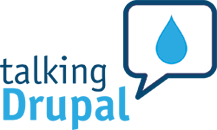Overview
Learn to move content into Drupal 11 using the Migrate API. We will present an overview of the Extract-Transform-Load (ETL) pattern that Migrate implements. Source, process, and destination plugins will be explained to learn how each affect the migration process. By the end of the workshop, you will have a better understanding on how the migrate ecosystem works and the thought process required to plan and perform migrations. All examples will use YAML files to configure migrations. No PHP coding required.
There will be plenty of hands on examples to demonstrate different migrate concepts and how they can be used to import data into different types of fields. Time will also be allocated to answer attendee’s questions for topics not covered in the predefined material.
Request a Private Training
Learning Objectives
- Understanding the ETL process
- Writing your first migration from a CSV file
- YAML syntax and migration errors
- Introduction to process plugins
- Understanding migration workflows
- Migrating data into nodes and files
- Migration syntax for multivalue fields
- Migrating dates and times
- Migrating addresses and validation considerations
- Migrating taxonomy terms with entity_generate plugin
- Source constants, pseudofields, and the process pipeline
- Migration dependencies
- Introduction to paragraph migrations
- Migrating from JSON endpoints
- Defining migrations as configuration entities
- Running migrations from the user interface
Prerequisites
Although no prior Migrate module knowledge is required, it is expected that you have a basic understanding of nodes, content types, and fields. We offer a getting started with Drupal training that covers all that is needed to take this course.
Setup instructions
Installing Drupal or 11 locally using composer is required. You can use the quick-start command that comes with Drupal core. Alternatively, you can use a tool like DrupalVM, Lando, DDEV, or Docksal. Drush needs to be installed in order to run migrations from the command line. You can learn more about the prerequisites for the training visiting https://agaric.coop/migration-training-resources
This training will be provided over Zoom. You can ask questions via text chat or audio. Sharing your screen, but you might want to do it to get assistance on a specific issue. Sharing your camera is optional.
What to expect

Prior to the training
Attendees will receive detailed instructions on how to setup their development environment. In addition, they will be able to join a support video call days before the training event to make the the local development environment is ready. This prevents losing time fixing problems with environment set up during the training.
On the days of the training
- The training totals 7 hours of instruction, which we usually split into 2 sessions.
- A team of developers available to answer questions and help with training-related issues.
After the training
- Attendees will receive copies of the training recordings.
- Attendees will receive a free copy of the 31 days of migrations book.
- Attendees will receive a certificate of completion.

